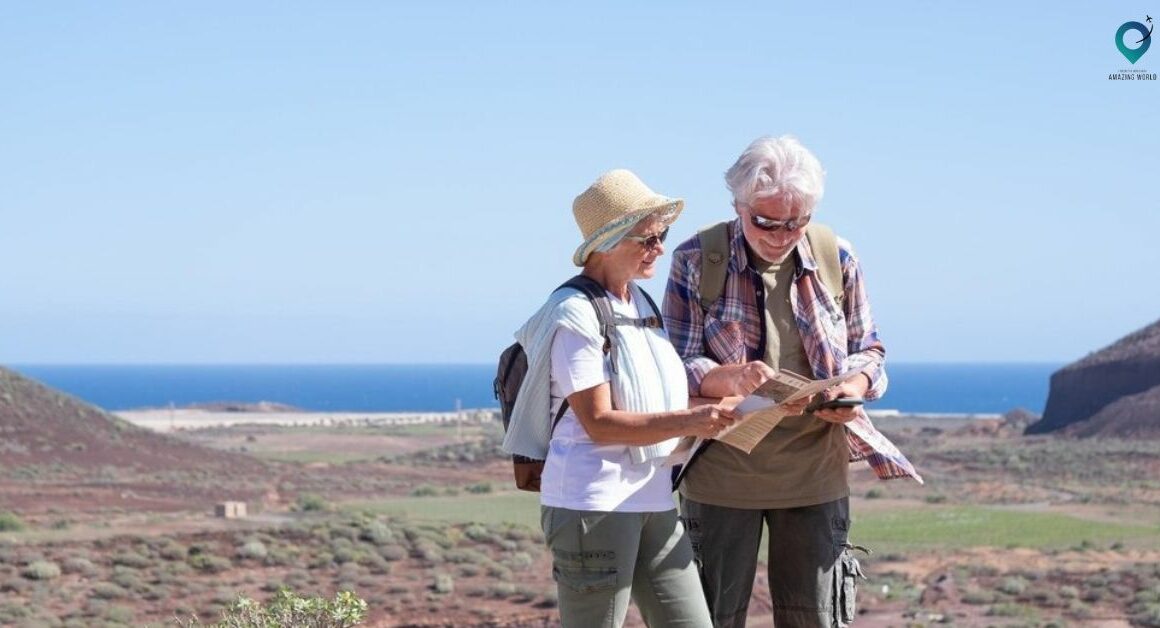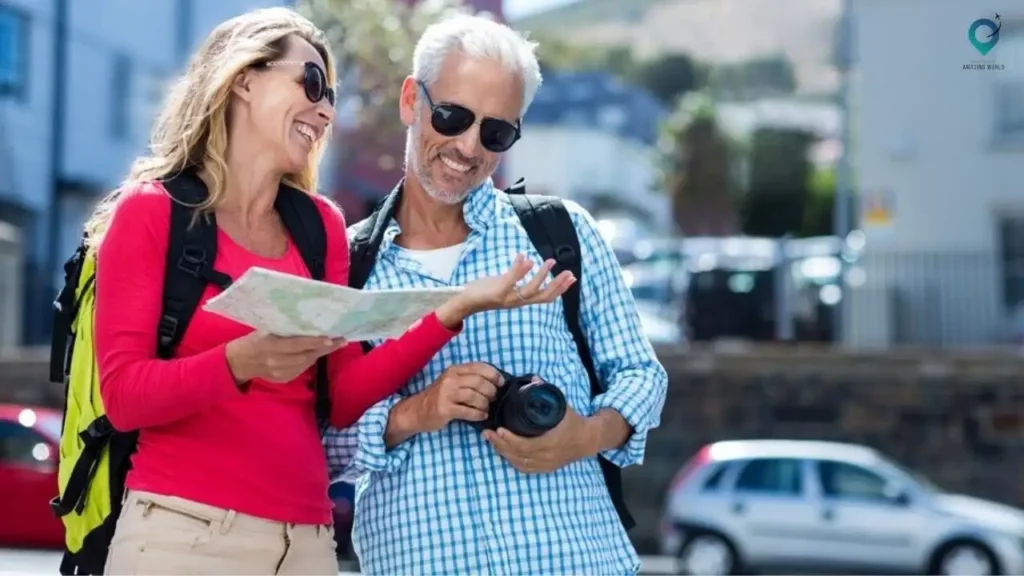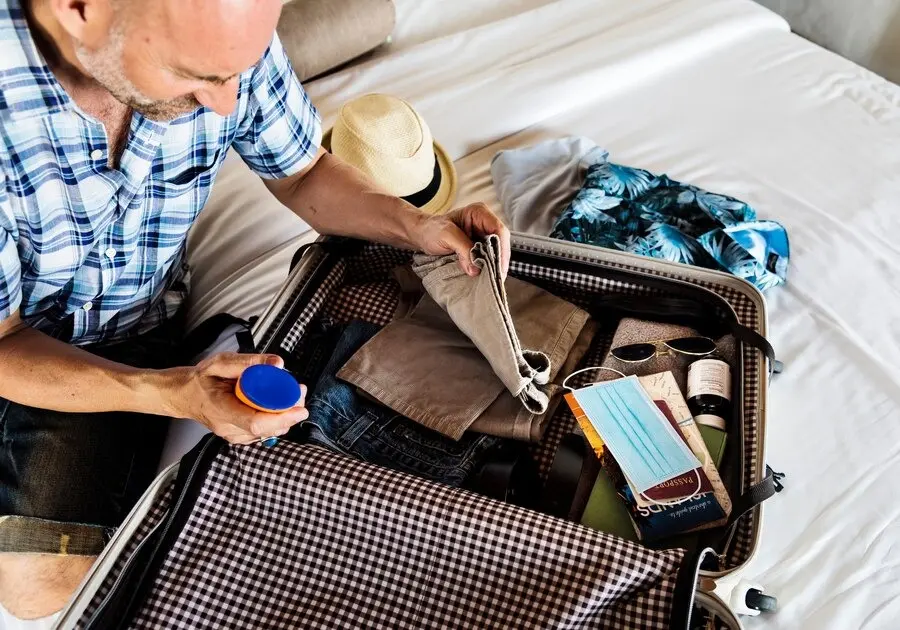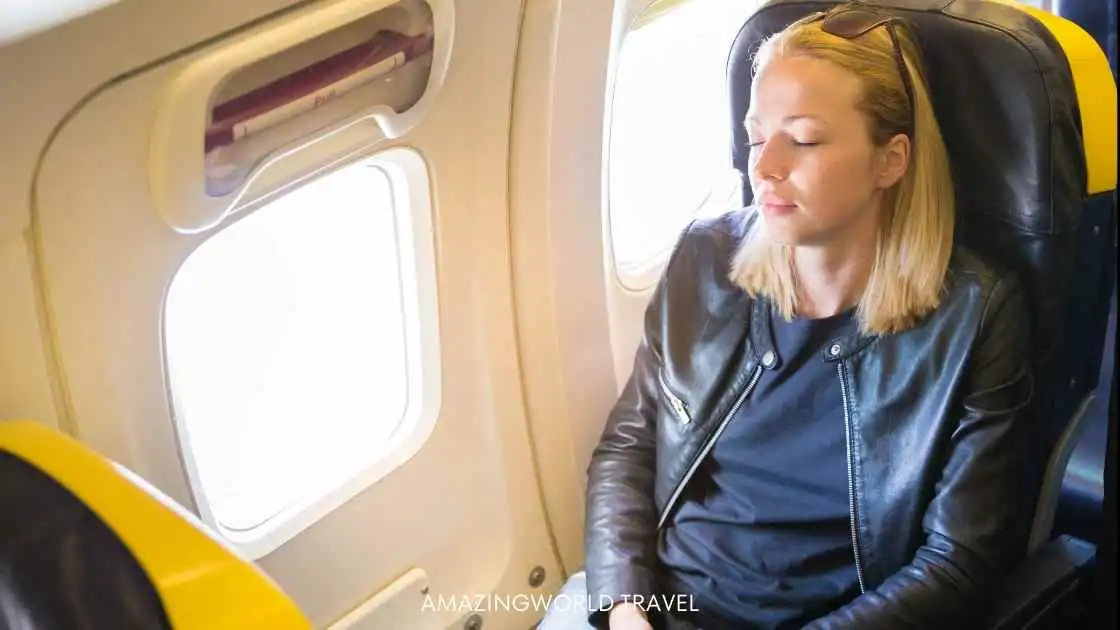Top travel tips for seniors—Must Read Tips (2023 Updated)
Are you a senior eager to explore new destinations but seeking guidance to ensure a smooth and enjoyable journey? In this updated guide, discover essential travel tips tailored specifically for seniors in 2023.
Whether you’re planning a solo adventure or considering group tours, these insightful recommendations cater to your needs, ensuring comfort, safety, and memorable experiences.
From navigating health considerations and safety precautions to maximizing budget-friendly options, this article serves as a comprehensive roadmap for Senior Travel Tips venturing into the world of travel.
Explore the nuances of comfortable accommodations, engaging activities, and smart budgeting while maintaining a focus on your well-being throughout your travels.
“If you are looking for the best hotel and flight deals for your next vacation, then we recommend booking your bundled flight and hotel through hotwire.com.“
Planning Ahead
Choosing Suitable Destinations
Selecting the right destination is critical for an enjoyable and stress-free trip:
- Accessibility: Opt for destinations with good infrastructure and accommodations suitable for seniors. Cities known for their accessibility or resorts designed for older adults are excellent choices.
- Climate and Terrain: Consider weather conditions and terrain that align with your physical capabilities and preferences. Flat terrains and moderate climates might be more suitable for some seniors.
- Proximity to Medical Facilities: Prioritize destinations near medical facilities or hospitals, especially for seniors with specific health needs or conditions.
Researching Accommodations and Transportation
Thorough research ensures comfort and convenience during travel:
- Senior-Friendly Accommodations: Look for hotels or lodgings that offer amenities catering to seniors, such as elevators, grab bars in bathrooms, and accessible room options.
- Transportation Options: Research transportation modes offering senior discounts or services tailored for reduced mobility. Choosing convenient transportation minimizes travel stress.
Considering Health and Mobility
Health and mobility planning are crucial aspects of a seamless travel experience.
- Consulting Healthcare Providers: Seek advice from healthcare providers to discuss any health concerns, required vaccinations, or adjustments to medications before the trip.
- Mobility Aids and Assistance: Plan for necessary mobility aids or assistance devices. Renting or bringing equipment like wheelchairs ensures comfort and ease of movement.
Packing Essentials
Clothing and Accessories
Packing appropriate clothing and essential accessories ensures comfort and preparedness for various situations:
- Comfortable Attire: Select clothing suitable for the destination’s climate and activities. Lightweight, moisture-wicking fabrics work well for warm climates, while layering is ideal for varying temperatures.
- Comfortable Shoes: Pack sturdy and comfortable footwear suitable for walking and exploring. Consider supportive sneakers or walking shoes to prevent discomfort during sightseeing.
- Weather-Appropriate Gear: Bring weather-specific gear like raincoats, hats, or scarves based on the destination’s climate forecasts. This ensures comfort and protection against unexpected weather changes.
Medications and Health Supplies
Carrying necessary medications and health supplies is crucial for uninterrupted care:
- Ample Medication Supply: Ensure an adequate stock of prescription medications to last the trip duration. Pack extras in case of unexpected delays or emergencies.
- First Aid Kit: Include a compact first aid kit with essentials like bandages, pain relievers, antiseptics, and any specialized items required for personal health needs.
- Health Insurance Information: Carry copies of health insurance cards, prescription lists, and emergency contact information. Store these in a secure, easily accessible place.
Travel Documents and Insurance
Keeping essential travel documents and insurance details organized is vital:
- Valid Identification and Passports: Ensure all necessary identification documents and passports are up-to-date and valid for the entire trip duration.
- Travel Insurance: Invest in comprehensive travel insurance covering medical emergencies, trip cancellations, and lost luggage. This provides peace of mind and financial protection during unforeseen circumstances.
- Copies of Documents: Make photocopies or digital scans of important documents like passports, visas, insurance papers, and itinerary. Keep these in a separate place from the originals as a backup.
Packing these essentials ensures preparedness for any situation and contributes to a smoother and more enjoyable travel experience for seniors.
Health Considerations
Pre-trip Health Check-ups
Before embarking on a journey, undertaking comprehensive health check-ups is essential:
- Medical Consultation: Schedule an appointment with a healthcare professional to discuss the trip. Address any health concerns, update vaccinations, and obtain necessary prescriptions.
- Vaccinations and Medications: Ensure all required vaccinations for the destination are up-to-date. Discuss potential travel-related medications or preventive measures, such as antimalarials or altitude sickness remedies.
- Health Condition Assessment: If managing chronic health conditions, seek advice on adjusting medications or managing conditions while traveling. Obtain written prescriptions and medical reports for reference.
Managing Medications and Prescriptions
Proper management of medications and prescriptions is crucial throughout the trip:
- Organizing Medications: Arrange medications in labeled containers or pill organizers according to dosage schedules. Pack a sufficient supply to last the trip duration.
- Prescription Details: Carry a detailed list of prescriptions, including generic names, dosages, and instructions. This list helps in case of emergency medical care or lost medications.
- Local Healthcare Information: Research local healthcare facilities and pharmacies at the destination. Ensure awareness of how to access medical assistance if needed.
Coping with Jet Lag and Staying Hydrated
Dealing with jet lag and maintaining hydration levels is vital for senior travelers:
- Adjusting to Time Changes: Gradually adjust sleep schedules a few days before the trip. Upon arrival, expose yourself to sunlight and stay active during daylight hours to acclimate faster.
- Staying Hydrated: Drink plenty of water before, during, and after the flight to combat dehydration. Limit caffeine and alcohol intake, as they can contribute to dehydration.
- Physical Activity and Rest: Engage in light physical activity upon arrival to combat fatigue. Take short naps if needed but avoid excessive sleeping during the day to adjust to the new time zone.
Addressing these health considerations ensures a more comfortable and enjoyable travel experience for seniors, minimizing health-related concerns during their journey.
Safety Tips
Securing Belongings and Important Documents
Ensuring the safety of personal belongings and essential documents is crucial while traveling:
- Money and Valuables: Use secure bags or pouches to carry money, credit cards, and valuable items. Consider using a money belt or hidden pockets for added security.
- Important Documents: Keep essential documents like passports, IDs, travel insurance papers, and emergency contacts in a secure and easily accessible place. Consider making digital copies as backups.
- Hotel Room Safety: Utilize room safes or lockboxes for storing valuables in accommodations. Lock doors and windows securely when leaving the room.
Avoiding Tourist Scams and Staying Vigilant
Being aware and cautious helps in avoiding common tourist scams and staying safe:
- Scam Awareness: Research common scams at the destination and stay informed about potential frauds or deceptive practices. Avoid sharing personal information with strangers.
- Vigilance in Public Areas: Be mindful of your surroundings in crowded places, tourist attractions, or public transportation. Stay cautious of pickpockets or suspicious individuals.
- Safety in unfamiliar areas: Stick to well-lit and populated areas, especially at night. Familiarize yourself with local emergency numbers and seek assistance if feeling unsafe.
Being Aware of Surroundings and Local Laws
Understanding local customs and laws ensures a respectful and safe travel experience:
- Respect Local Customs: Research and respect cultural norms and practices to avoid inadvertently offending locals.
- Following Laws: Familiarize yourself with local laws, especially concerning behavior, dress codes, and prohibited activities. Adhering to local regulations minimizes potential conflicts or legal issues.
- Seeking Guidance: If unsure about local customs or laws, seek guidance from tour guides or local authorities. They can provide valuable insights and advice.
Implementing these safety tips helps seniors navigate their travels securely, ensuring a worry-free and enjoyable exploration of new destinations.
Staying Comfortable
Choosing Appropriate Accommodations
Selecting the right accommodations plays a significant role in ensuring comfort during travel:
- Comfort-Oriented Features: Look for accommodations with amenities catering to senior needs, such as accessible rooms, grab bars in bathrooms, or elevators.
- Room Preferences: Request rooms on lower floors for convenience, or closer to elevators to minimize walking distances. Consider room layouts that suit mobility needs.
- Hotel Reviews and Recommendations: Prioritize accommodations with positive reviews regarding cleanliness, comfort, and helpful staff, ensuring a pleasant stay.
Tips for Comfortable Transportation
Comfortable transportation contributes to a smoother travel experience for seniors:
- Assistance Services: Choose transportation options that offer assistance for reduced mobility, such as wheelchair-accessible vehicles or airline services.
- Seating Preferences: Opt for seats with more legroom or proximity to exits for easier movement. Stretch legs and take short walks during longer journeys to prevent stiffness.
- Breaks and Comfort Stops: Plan breaks during long journeys to stretch, relax, and use restroom facilities. Pacing travel helps in managing fatigue.
Relaxation Techniques and Managing Fatigue
Managing fatigue and incorporating relaxation techniques enhance overall comfort:
- Relaxation Practices: Practice deep breathing, meditation, or listen to calming music during travel to reduce stress and promote relaxation.
- Pace and Rest: Pace activities to avoid exhaustion. Take breaks and rest when needed to recharge and maintain energy levels throughout the journey.
- Comfort Items: Bring comfort items like travel pillows, blankets, or eye masks for added relaxation during flights or long trips.
Implementing these strategies ensures a more comfortable and enjoyable travel experience for seniors, allowing them to focus on the pleasures of exploration without undue discomfort.
Exploring Activities
Leisurely Sightseeing Options
Engaging in sightseeing activities at a comfortable pace ensures an enjoyable experience for senior travelers:
- Scenic Drives and Walks: Consider scenic drives or leisurely walks in picturesque locations to appreciate the beauty of the destination without physical strain.
- Guided Tours: Opt for guided tours with manageable itineraries and rest breaks. These tours provide insightful information and reduce the need for extensive walking.
- Accessible Attractions: Visit attractions with accessibility features such as ramps, elevators, or benches for resting, allowing for a more comfortable exploration.
Participating in Local Cultural Experiences
Immersing in local culture enriches the travel experience.
- Cultural Workshops: Engage in cultural workshops like cooking classes, art demonstrations, or craft sessions to immerse in local traditions.
- Local Events and Festivals: Attend local events, festivals, or performances to experience the vibrant culture and traditions of the destination.
- Cultural Sites Visits: Explore cultural landmarks, museums, or historical sites that offer audio guides or seating areas for a comfortable and enriching experience.
Engaging in Suitable Physical Activities
Incorporating light physical activities contributes to maintaining health and energy levels:
- Gentle Exercises: Practice gentle exercises like yoga, tai chi, or water aerobics suitable for seniors to stay active without excessive strain.
- Nature Walks or Easy Hikes: Participate in nature walks or easy hikes in scenic areas to enjoy the outdoors while being mindful of physical limitations.
- Swimming or Water-based Activities: Consider swimming or water-based activities for low-impact exercises that are gentle on joints and muscles.
Engaging in these activities tailored to comfort and mobility ensures that senior travelers can fully immerse themselves in the destination’s offerings while maintaining a comfortable and enjoyable pace.
Social Aspects
Group travel or solo exploration?
Deciding between group travel or solo exploration depends on individual preferences and comfort levels:
- Group Travel Benefits: Joining group tours offers opportunities for social interactions, shared experiences, and a structured itinerary, which can be comforting for some seniors.
- Solo Exploration Advantages: Traveling solo allows for personal freedom, flexibility in planning, and the chance to engage more intimately with the destination.
- Customized Experiences: Consider a mix of both options, combining group tours for specific activities while enjoying solo exploration for personal preferences.
Meeting People and Making Connections
Engaging with fellow travelers or locals adds depth to the travel experience:
- Socializing Opportunities: Strike up conversations with fellow travelers during tours, at accommodations, or in communal spaces to share stories and experiences.
- Local Interactions: Interact with locals through cultural events, markets, or social gatherings to gain insights into the destination’s culture and traditions.
- Online Communities and Forums: Join online travel communities or forums catering to seniors to connect, share tips, and even find potential travel companions.
Joining Senior-Friendly Tours or Groups
Opting for tours or groups designed for seniors offers tailored experiences:
- Specialized Services: Choose tours or groups with services catering to seniors’ needs, such as slower pace, comfortable transportation, and accessibility.
- Shared Interests: Engage in tours focusing on specific interests like history, art, or nature, allowing for like-minded interactions and shared enjoyment.
- Safety and Comfort: Senior-friendly tours prioritize safety measures and comfortable accommodations, ensuring a stress-free and enjoyable journey.
Engaging in social aspects while traveling allows senior explorers to forge connections, share experiences, and create lasting memories, enhancing the overall travel experience.
Budgeting Tips
Senior Discounts and Special Offers
Utilizing discounts and special offers tailored for seniors helps in managing travel expenses:
- Airlines and Transportation: Many airlines offer discounted fares or special seating arrangements for seniors. Explore options for reduced fares or senior travel passes.
- Accommodation Discounts: Hotels, resorts, and rental accommodations often provide senior discounts. Check for special rates or packages exclusively available for older adults.
- Attraction Tickets and Tours: Look for attractions or tours offering reduced prices or special packages for seniors. Admission fees and tour costs may have discounted rates.
Budgeting for Unexpected Expenses
Preparing a contingency fund for unforeseen expenses ensures financial security during travel:
- Emergency Fund: Set aside a portion of the travel budget as an emergency fund to cover unexpected expenses like medical emergencies or trip alterations.
- Buffer for Extras: Plan for unexpected costs like additional meals, transportation changes, or unexpected purchases while exploring the destination.
- Travel Insurance Coverage: Review the coverage details of travel insurance to understand what expenses are reimbursable in case of emergencies.
Using Travel Rewards and Loyalty Programs
Maximizing travel rewards and loyalty programs helps in saving costs and earning perks:
- Reward Points and Miles: Utilize accumulated reward points or miles for discounted flights, hotel stays, or upgrades. Check for special senior loyalty programs.
- Membership Benefits: Join loyalty programs offered by airlines, hotels, or travel agencies to access exclusive discounts, priority services, or complimentary upgrades.
- Credit Card Benefits: Use credit cards offering travel-related benefits such as cashback on travel expenses, travel insurance, or special discounts.
Implementing these budgeting tips allows senior travelers to manage expenses effectively, ensuring a more economical yet enjoyable travel experience.
Conclusion
Traveling as a senior can be an enriching and enjoyable experience with proper planning and precautions. Prioritize your health, safety, and comfort, and make the most out of your adventures by exploring destinations that cater to your needs. Remember to savor every moment and create lasting memories.
How much did you like Our detailed Top travel tips for seniors—Must Read Tips (2023 Updated)? Review Also, please share these Blogs with your friends on social media.
Recommended

Meet David Hoper, a passionate travel Blog writer with 7+ years of experience in travel content. Through his exemplary storytelling and engaging narratives, he shares his experiences and brings destinations to life. With a keen eye for detail and a love for exploration, he has cultivated a diverse portfolio of travel blogs that inspire and inform readers worldwide.












